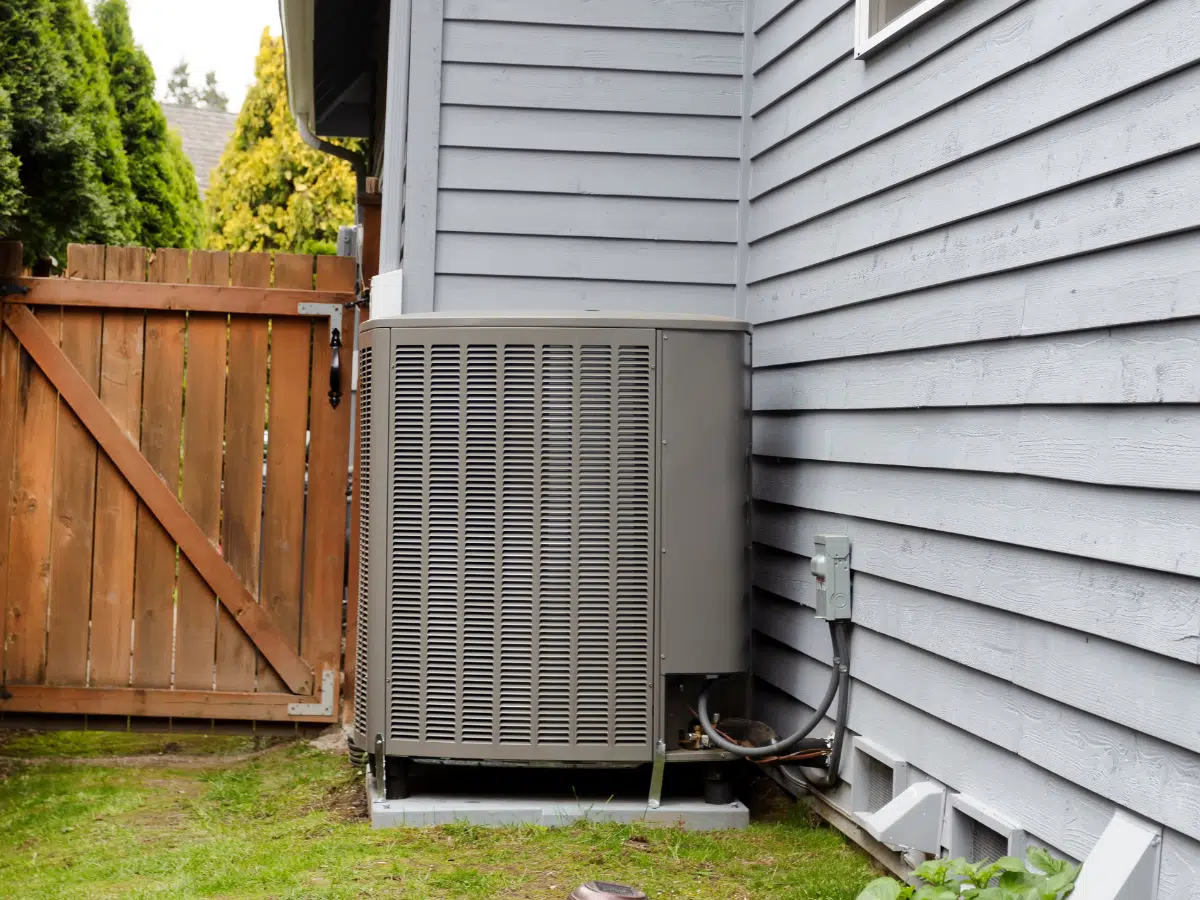If you’re a new homeowner or upgrading your current home’s heating system, you may have found a variety of options available. If you’ve been looking through the different options, it can be challenging to know which system to choose.
We’re here to help. We have a series of articles comparing different heating and cooling options to help home and property owners choose the best system for their needs. Today’s article will compare heat pumps and oil furnaces.
Read below to learn more about these two heating systems.
Cost (initial installation and long term)
When considering the cost of a heat pump or an oil furnace, there are several factors, including installation, fuel type, maintenance and operational efficiency.
When it comes to a heat pump, its installation cost might be higher initially. That’s because they are a bit more complex than traditional heating systems, requiring an outdoor unit and an indoor air unit. More labor often means a larger installation bill.
Oil furnaces, on the other hand, are simpler and less expensive to install initially, but they may cost you more long-term. These aren’t as complex as heat pumps, but they require an oil storage tank. Also, the oil price can fluctuate, potentially raising your operational costs.
Long-term, heat pumps are known for their energy efficiency. So, despite the higher upfront cost, a heat pump could save you money over time on your energy bills. Conversely, while an oil furnace might be cheaper to install, those fluctuating oil prices and maintenance requirements could lead to higher operational costs in the long run.
Note that electric furnaces are available if oil or gas are too expensive/inaccessible in your region.
Energy efficiency and heating performance
You want your system to be efficient, but you also want it to heat your home well! Let’s look at how these systems work.
Heat pumps move heat; they don’t generate it. In the winter, they take warmth from the outside air and move it indoors. In the summer, it’s the opposite – they push warm inside air from your home outdoors. Heat transfer takes less energy than heat generation, making heat pumps incredibly energy efficient.
Oil furnaces burn the oil to generate heat. Since it requires a continuous flow of oil to maintain heating, it’s less efficient. Oil is also a fossil fuel – even with an efficient system, it’s still not the greatest for the environment.
In Arkansas, where winters can be on the milder side and summers are hot and humid, heat pumps can be effective. They excel in moderate temperatures, making them a great fit for our climate.
However, during the rare bouts of extreme cold, they may need to work harder to maintain comfortable indoor temperatures or get help from an additional heating source. Oil furnaces can provide more consistent heat output for mild to extremely cold climates.
Contact a professional to discuss the best system for your needs.
Maintenance requirements
With any heater, you should know what you’re signing up for maintenance-wise!
Heat pumps, given their complexity, need regular maintenance to ensure optimal operation. This includes annual professional check-ups and cleaning, alongside routine tasks that homeowners can perform, like changing filters and clearing the outdoor unit of things that could clog it.
Though heat pumps are more on the needy side, they are known for their reliability and have an average lifespan of 15 years. With excellent care, they can last up to 20 years.
Oil furnaces, while less complex, also require regular maintenance to ensure longevity. Your technician will conduct annual inspections to refill oil levels and prevent soot build-up. Like a vehicle, the oil quality can directly affect how well your system runs and how long it lasts.
While they are more prone to frequent repairs, a well-maintained oil furnace can last for 15-20 years.
Here at Anderson Air, we understand that a heating system is a long-term investment. That’s why our professionals want to help you choose the most effective and efficient option for your home.
Want more information about maintenance requirements or need support with your existing system? Our team is ready to help. Give us a call today.
Which one should I invest in for my home?
When you’re choosing a heating or cooling system, it will largely depend on your individual circumstances and needs. Here are a few things to consider:
- Budget: Know how much you can spend on a system both short and long-term. Consider both the upfront cost of the heating system and the ongoing operational and maintenance costs. Heat pumps cost more to install but are more cost-effective long-term; oil furnaces are less to install but may cost more overtime.
- Heating Needs: Assess your home’s heating needs considering the average winter temperatures in your area. If you live in a moderate climate, consider a heat pump. However, an oil furnace might be more appropriate in colder climates or for those needing warmer indoor temperatures.
- Home’s Capacity: The size and insulation and number of rooms in your home can significantly influence the effectiveness of your heating system. Larger, poorly insulated homes might require a more powerful system, like an oil furnace, while smaller, well-insulated homes could be fine with a heat pump.
- Fuel Availability: Your local fuel availability is crucial. While electricity for heat pumps is widely available, oil for furnaces may not be as readily accessible in all areas. Also, consider the long-term availability and cost fluctuations of your chosen fuel source.
Call Anderson Air for the best in heating and cooling
If you need help making your decision, the experts at Anderson Air are just a phone call away. We are committed to helping you find the best, affordable heating solutions for your home without hurting your wallet.
Reach out today for a consultation or any questions regarding your home’s heating options. Your comfort is our business. Call Anderson Air today.

